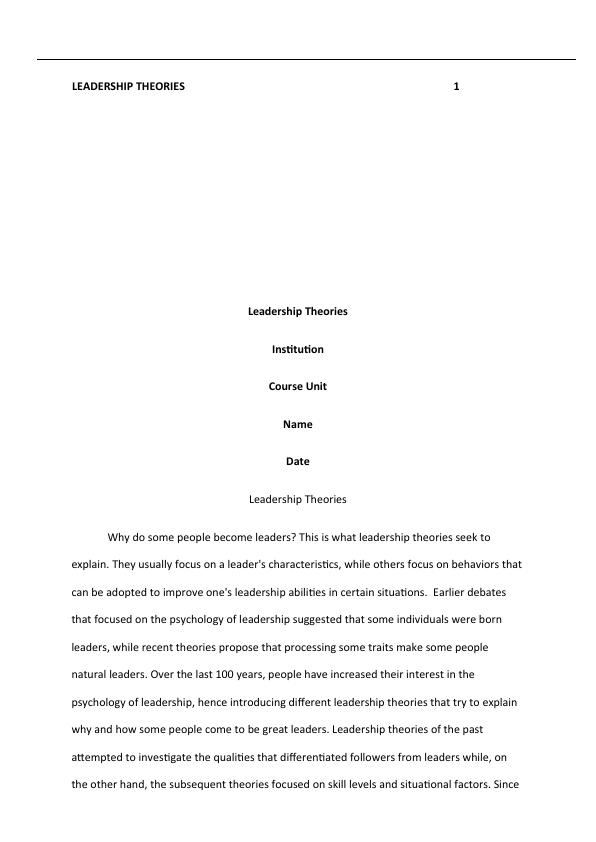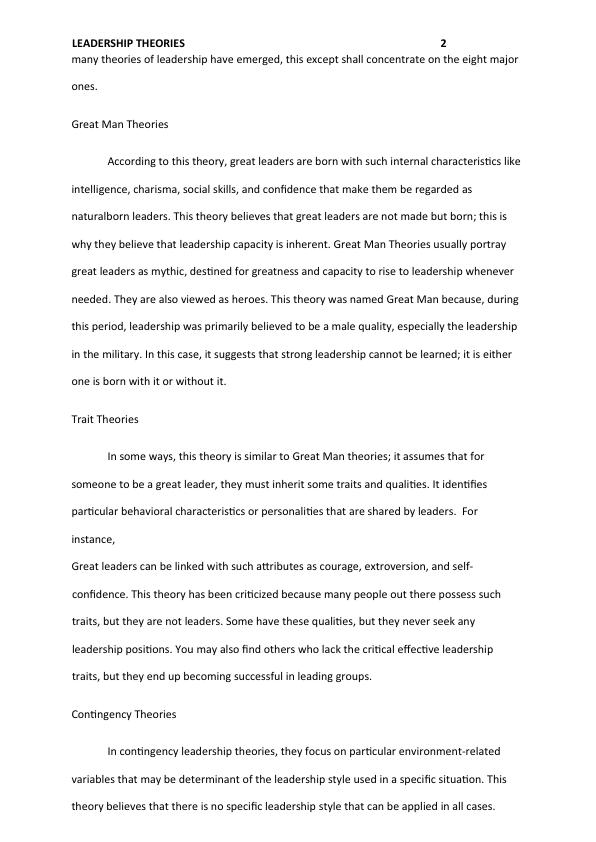Leadership Theories
Added on 2023-02-06
5 Pages1056 Words51 Views
End of preview
Want to access all the pages? Upload your documents or become a member.
Leadership Theories
|5
|1050
|22
Leadership and Change Management: Impact on Employee Job Satisfaction and Organizational Obligation in the Construction Sector of UAE
|8
|2712
|376
Traits and Behaviors of Early Leadership Theories
|8
|1664
|359
Leadership and Management Theories in Dangote Cement Group
|28
|7034
|103
Leadership in Business - Assignment Solved
|8
|3025
|22
Leadership Theories and Organisational Culture at Google
|9
|2685
|94


